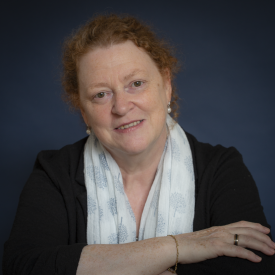 In a series of three Lectures broadcast between Christmas and the New Year, Professor Dame Sue Black will reveal the secrets of the real-life scientific detective process she uses to identify both the dead and the living. It will be an unprecedented insight into her role in deciphering secret messages hidden within the body as she strives to name the unknown, reuniting dead and living bodies with their identity.
In a series of three Lectures broadcast between Christmas and the New Year, Professor Dame Sue Black will reveal the secrets of the real-life scientific detective process she uses to identify both the dead and the living. It will be an unprecedented insight into her role in deciphering secret messages hidden within the body as she strives to name the unknown, reuniting dead and living bodies with their identity.
Professor Black's research focusses on many aspects of human identification, but is principally aligned to forensic cases associated with perpetrators of child sexual abuse. Her recent £2.5M ERC senior fellowship grant is entitled 'In search of uniqueness – harnessing anatomical hand variation (h-unique)'.
In this year's Christmas Lectures, Professor Black will discuss the incredible range of information clues in our bones can reveal; from age, sex and medical history, to diets and ancestry. She will show how crimes can be solved from the smallest fragments of bones, and how fingerprinting and DNA testing helps to resolve wrongful convictions. More details of her much anticipated Lectures can be found on The Royal Institution website.
Professor Black said: "It is an enormous honour to be chosen to present the 2022 Christmas Lectures. I’m looking forward to revealing the crucial but often unseen work of forensic investigators and to fuelling some young imaginations with this amazing area of science. And as discussing and critically examining science is so important to its application in our lives, I’ll also be asking some challenging and thought-provoking questions about the future of forensic science, whether our identity, actually, is wrapped up more in our memories than it is in our bodies, and what that might mean for crime detection."
The full story can be found on the St John's College website.
Read more about 'Secrets of forensic science' on The Royal Institution website.

